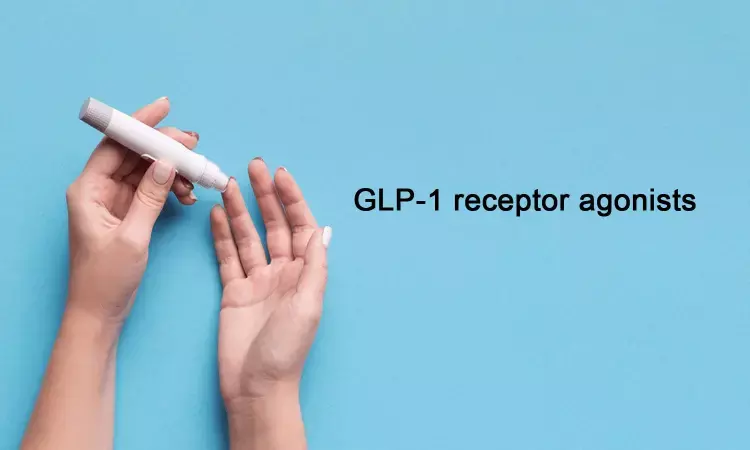- Home
- Medical news & Guidelines
- Anesthesiology
- Cardiology and CTVS
- Critical Care
- Dentistry
- Dermatology
- Diabetes and Endocrinology
- ENT
- Gastroenterology
- Medicine
- Nephrology
- Neurology
- Obstretics-Gynaecology
- Oncology
- Ophthalmology
- Orthopaedics
- Pediatrics-Neonatology
- Psychiatry
- Pulmonology
- Radiology
- Surgery
- Urology
- Laboratory Medicine
- Diet
- Nursing
- Paramedical
- Physiotherapy
- Health news
- Fact Check
- Bone Health Fact Check
- Brain Health Fact Check
- Cancer Related Fact Check
- Child Care Fact Check
- Dental and oral health fact check
- Diabetes and metabolic health fact check
- Diet and Nutrition Fact Check
- Eye and ENT Care Fact Check
- Fitness fact check
- Gut health fact check
- Heart health fact check
- Kidney health fact check
- Medical education fact check
- Men's health fact check
- Respiratory fact check
- Skin and hair care fact check
- Vaccine and Immunization fact check
- Women's health fact check
- AYUSH
- State News
- Andaman and Nicobar Islands
- Andhra Pradesh
- Arunachal Pradesh
- Assam
- Bihar
- Chandigarh
- Chattisgarh
- Dadra and Nagar Haveli
- Daman and Diu
- Delhi
- Goa
- Gujarat
- Haryana
- Himachal Pradesh
- Jammu & Kashmir
- Jharkhand
- Karnataka
- Kerala
- Ladakh
- Lakshadweep
- Madhya Pradesh
- Maharashtra
- Manipur
- Meghalaya
- Mizoram
- Nagaland
- Odisha
- Puducherry
- Punjab
- Rajasthan
- Sikkim
- Tamil Nadu
- Telangana
- Tripura
- Uttar Pradesh
- Uttrakhand
- West Bengal
- Medical Education
- Industry
GLP-1RA Use May Lower Overall Cancer Risk but Increase Kidney Cancer Risk in Obese Patients: JAMA

USA: A new study published in JAMA Oncology has revealed that glucagon-like peptide-1 receptor agonists (GLP-1RAs), widely used for type 2 diabetes management and weight loss, may have an impact on cancer risk among adults with obesity.
The research, led by Hao Dai and colleagues from the Department of Biostatistics and Health Data Science, Indiana University School of Medicine, explored the association between GLP-1RA use and the likelihood of developing cancer.
GLP-1RAs have become increasingly popular as anti-obesity medications, but their long-term safety profile, particularly to cancer, has remained unclear. To address this, the investigators conducted a retrospective cohort study using electronic health record data from OneFlorida+, a large multicenter health research network, covering the period from 2014 to 2024. The analysis followed a target trial emulation approach to ensure robust comparisons between users and nonusers of GLP-1RAs.
The study population included 86,632 adults aged 18 years and older, all eligible for anti-obesity medications and free from prior cancer diagnoses. Participants were matched in a 1:1 ratio using propensity scores, resulting in two groups: 43,317 individuals who used GLP-1RAs and 43,315 who did not. The average age of participants was 52.4 years, and women constituted 68.2% of the sample.
Researchers evaluated the incidence of 14 cancers, including 13 obesity-related types—such as liver, pancreatic, colorectal, breast, and endometrial cancers—along with lung cancer.
The key findings of the study were as follows:
- The overall cancer incidence rate was 13.6 per 1,000 person-years among GLP-1RA users compared to 16.4 per 1,000 person-years in nonusers.
- This difference reflected a significantly lower overall cancer risk for GLP-1RA users, with a hazard ratio (HR) of 0.83.
- GLP-1RA use was associated with a reduced risk of endometrial cancer, with an HR of 0.75.
- The risk of ovarian cancer was also lower among GLP-1RA users, with an HR of 0.53.
- Meningioma risk showed a decrease as well, with an HR of 0.69 in individuals taking GLP-1RAs.
- A marginal, nonsignificant increase in kidney cancer risk was noted among GLP-1RA users, with an HR of 1.38.
The authors concluded that while GLP-1RA therapy appears to lower the overall risk of cancer in individuals with obesity, the possibly elevated risk for kidney cancer warrants attention. They emphasized the importance of long-term follow-up studies to better understand these associations and uncover the underlying biological mechanisms.
These findings add an important dimension to the discussion around GLP-1RA use, suggesting potential protective effects against several cancers while highlighting the need for ongoing safety evaluations as these drugs continue to be widely prescribed.
Reference:
Dai H, Li Y, Lee YA, et al. GLP-1 Receptor Agonists and Cancer Risk in Adults With Obesity. JAMA Oncol. Published online August 21, 2025. doi:10.1001/jamaoncol.2025.2681
Dr Kamal Kant Kohli-MBBS, DTCD- a chest specialist with more than 30 years of practice and a flair for writing clinical articles, Dr Kamal Kant Kohli joined Medical Dialogues as a Chief Editor of Medical News. Besides writing articles, as an editor, he proofreads and verifies all the medical content published on Medical Dialogues including those coming from journals, studies,medical conferences,guidelines etc. Email: drkohli@medicaldialogues.in. Contact no. 011-43720751
Next Story


